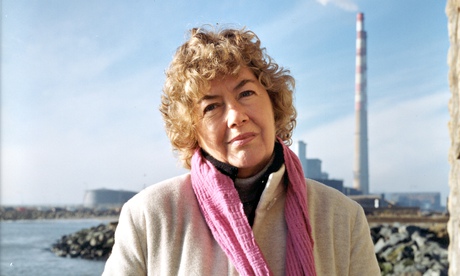
In 2008 Hugo Hamilton took his friend, the celebrated writer and broadcaster Nuala O'Faolain, to Berlin for a few days. O'Faolain, wheelchair-bound, 68, high on Xanax, was suffering the final insults of metastatic cancer, for which she had refused chemotherapy, and the journey was to be the last excursion of a full-tilt, roving life; she died 10 days later. This book, which feels like an act of love as well as homage, is Hamilton's response to that journey.
It is presented as a novel. O'Faolain, whose memoirs of her growing up had made her a key figure in Irish culture and Irish feminism, is cast as Una in the book; the author is called Liam. The framing gives Hamilton a get-out clause, you suppose, but the substance of the fiction is so vivid and precise, and draws so heavily on the known detail of O'Faolain's life, that you never for a moment as a reader think of it as anything other than true. In an interview last week with the Irish Times, Hamilton suggested that the account was a "blurred or smudged portrait". He has come in for a little muttered criticism in Dublin for "exploiting" the shared intimacies of these last days with O'Faolain, but such is the grace and tact with which the book is crafted it is hard to imagine it an intrusion that his famously frank late friend would have minded in the slightest.
The pair had long shared some common ground, not least in the fact that they had both written their most significant books about childhood dominated by fathers. O'Faolain's old man, the long time "king" of Dublin journalism, former diarist known as "Terry O", was dethroned in her writing as a bully to her alcoholic mother and a philanderer, a man who "murdered" her late beloved brother by withholding love and packing him off to London where he too gave in to the drinkers' gene. Hamilton's description of his own father, a nationalist who refused to let him speak English, in The Speckled People, was less brutal, but equally candid. The two memoirists had clashed on various literary panels over the years over the degree of empathy that a parent deserved from a child; that battle is rejoined here as they tour Berlin's sites of historical division and rapprochement, the Brandenburg Gate, the Pergamon altar and the rest.
The book is structured around the sightseeing, but its heart lies in this argument about memory. Una, in the pressing imminence of ending, looks back over the loves and losses of her past, and returns to the perceived betrayal of her parents, deaf to Liam's entreaties that she should perhaps seek what the therapists call "closure". "It's my life," she insists, and anger is one of its defining qualities.
That question of ownership is challenged by Hamilton – not least in his writing of this book, which is, along the way, a profound statement of the idea that the essence of our lives exists not within us but in all the accumulated perceptions of those who have known and loved us. Una has stayed deliberately childless to avoid becoming her mother, and to try to control her own story. Liam, who finds himself opening up – to the woman who will soon remember nothing – about his anxiety over the disputed paternity of his daughter, and the defining mystery of his childhood – a strange affair that seems to involve his Jesuit uncle, his mother and a widowed aunt – is not sure that is an option.
As these arguments unfold, there are moments of great tenderness and honesty between the wheelchair pusher and its occupant. Hamilton has a poet's eye, and the heightened consciousness of Una's last looking at the world allows him licence to employ it. Their little shared odyssey through the precarious present tense is full of tiny epiphanies and sadness, the pleasures of an apple strudel or the buzz of a theatre foyer (Liam takes Una to her last opera, Don Carlo, in which father kills son) or the sound of church bells are all described with Una's understanding that they will not come round again.
Una, by which I guess we can honestly infer O'Faolain, spent a lot of time over her will. She tried to apportion the appropriate bequest to each friend and former lover, thus to a writer friend she left "the yellow curtains she bought in New York drifting in the open window", and to another she left a "sum of money for all the walks not yet walked without a map". To Liam, or Hamilton, she bequeathed everlasting thanks for the time they had in Berlin, days she would remember "all her life". The author is not sure what the other beneficiaries of the will did with their instructions and wishes, but you would have to say he has gone one better with his own – he has brought those Berlin days back to irrepressible, complicated, poignant life.

